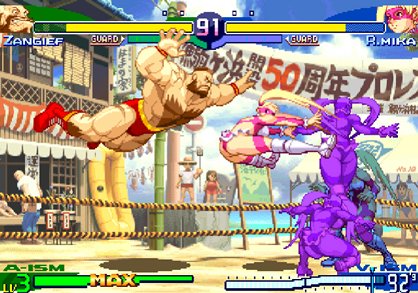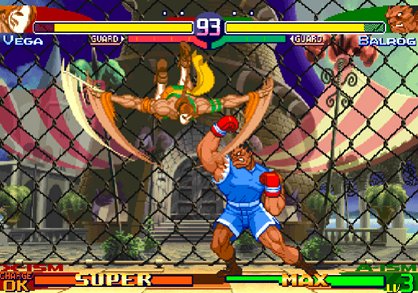Why Street Fighter is still the most important fighting game series around
Seventeen years after Street Fighter II there's still no-one to touch Ryu and co. But what makes the series so special?
While Capcom has built upon Street Fighter II’s framework exponentially throughout it’s multitude of upgrades and sequels, its foundations have always remained with the styles and approaches forged through that original, natural, player-dictated evolution of what the game should be. As a result, Street Fighter games are the most instinctive and welcoming fighters around. While high-level play can be incredibly intricate, the bones around which it is built have a natural flow and simple accessibility unmatched by any other series. Street Fighter’s easy to understand use of vertical and horizonal space and angle of attack is coupled with control inputs that just feel right. Quarter-circle fireball commands and charged flaming torpedoes physically mirror their on-screen outcomes and give the game both a flowing immediacy and a logical comprehensibility that anyone can pick up and experiment with from the get-go. The game is in tune with the player’s mind, not the other way around.

Street Fighter is entirely the player’s own game. Playing it is like being presented with a kitchen stocked with every ingredient imaginable and being allowed to cook anything that may take one’s fancy. The special moves are balanced well enough that the game can be played with those alone. The standard moves are so versatile that success can be achieved without using a single special. Street Fighter has no demands or prerequisites that need to be fulfilled to attain victory or enjoyment, and every player can find and succeed with their own completely unique style. And as a direct result, in multiplayer there are as many gameplay possibilities as there are player combinations, and every player’s style will constantly develop as he or she is forced to adapt and learn ever further from opponents’ approaches.

For that reason, Street Fighter is an eternal series, because to play it is a constant journey of personal development in which there will never be a final cap on how much the player can learn. There are no excuses or barriers to success other than the player’s own attitude. If what you make in that kitchen tastes bad, it’s no one’s fault but your own. The openness of the game’s design means that neither success or failure is ever guaranteed, whatever the combination of combatants, and the natural, flowing gameplay always leaves space for rapid improvisation and instant changes of pace and tack. More than any other fighting game, Street Fighter refuses to lock the player into a certain course of action, whatever the circumstances. The controls allow anyone, whatever their experience, to change the focus of a fight on the spot by instinctively tracing a line of movement around the screen with the stick for their evasions and attacks to follow. Street Fighter is always exactly as good as you are, and its depth of play matches your depth of thought on a completely equal footing.
Sign up to the GamesRadar+ Newsletter
Weekly digests, tales from the communities you love, and more



